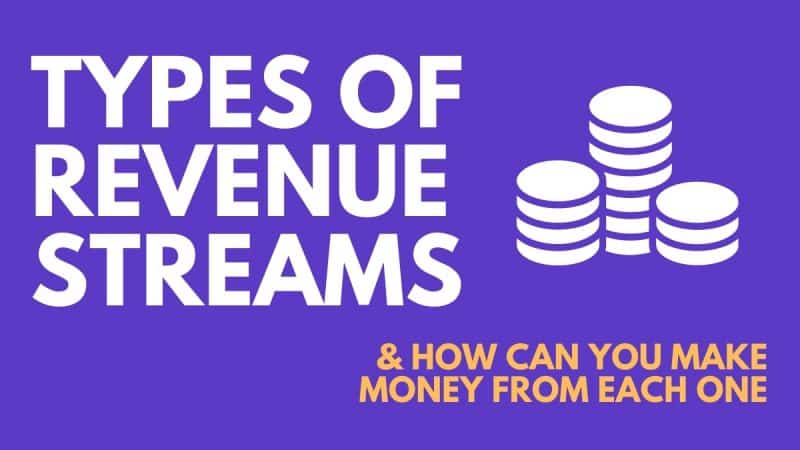Recognizing the Problem: Identifying Credit Card Debt
Credit card debt is a common financial challenge faced by many individuals, often stemming from everyday purchases, unexpected expenses, or emergency situations. Accruing interest and fees can make it increasingly difficult to escape this cycle, leading to a growing burden that may negatively impact one’s financial stability and overall well-being. Thus, acknowledging and addressing credit card debt is crucial for those seeking financial freedom.
Assessing Your Current Financial Situation
Understanding your current financial landscape is essential when addressing credit card debt. This process involves evaluating your income, expenses, and existing debt to create a clear picture of your financial health. By identifying areas of potential improvement, you can develop a well-informed strategy to tackle your debt and regain control over your finances.
Begin by listing all sources of income, including your primary job, side hustles, or any other regular earnings. Next, detail your monthly expenses, such as rent or mortgage payments, utilities, groceries, transportation, and entertainment. Comparing your income against your expenses will help you identify any imbalances and potential areas for cost reduction.
Additionally, make a comprehensive list of all your debts, including credit card balances, student loans, and personal loans. Record the outstanding balance, interest rate, and minimum monthly payment for each debt. This information will enable you to prioritize your debts and develop a targeted repayment plan.
Creating a Realistic Budget
A well-crafted budget is essential for managing your finances and reducing credit card debt. By allocating your income towards necessities, savings, and debt repayment, you establish a clear path towards financial stability. A budget allows you to monitor your progress, adjust your strategy as needed, and maintain control over your financial situation.
To create a realistic budget, list your income and expenses, categorize them, and allocate a portion of your income towards savings and debt repayment. Prioritize your debts using the debt snowball method and commit to making regular, consistent payments. By following your budget and consistently allocating funds towards debt repayment, you will gradually reduce your credit card debt and improve your overall financial health.
Prioritizing Debts: The Snowball Method
The debt snowball method is a popular strategy for tackling credit card debt, focusing on paying off smaller debts first to build momentum and motivation. By eliminating smaller debts quickly, you can free up both funds and mental energy to tackle larger debts with renewed vigor.
To implement the debt snowball method, begin by listing all your debts, including the outstanding balance, interest rate, and minimum monthly payment for each. Next, arrange your debts from smallest to largest balance, regardless of the interest rate. Commit to making the minimum payment on all debts, except for the one with the smallest balance. For this debt, allocate as much extra money as possible towards the monthly payment until it’s completely paid off.
Once the smallest debt is eliminated, celebrate your success and apply the funds you were using to pay it off towards the next smallest debt on your list. Continue this process, rolling your payments from one debt to the next, until all your debts are paid in full. This method not only helps you gain traction in reducing your debt but also provides a psychological boost that can keep you motivated throughout the process.
Negotiating with Creditors: Seeking Lower Interest Rates
Negotiating with creditors can be an effective way to reduce your interest rates and fees, ultimately helping you pay off your credit card debt more quickly and affordably. By proactively communicating with your creditors, you demonstrate your commitment to resolving your debt, which may encourage them to offer more favorable terms.
To begin the negotiation process, gather essential information about your debts, including the outstanding balance, interest rate, and minimum monthly payment for each account. Prepare a clear, concise statement outlining your financial situation, including any recent changes or hardships that may have contributed to your debt. This information will help creditors understand your challenges and be more willing to work with you.
When contacting your creditors, remain polite, patient, and persistent. Explain your situation and express your desire to repay your debt in full. Request a lower interest rate or fee reduction, emphasizing how this change will benefit both you and the creditor. Be prepared to provide documentation supporting your financial situation and be open to compromise. If your initial request is denied, don’t give up; instead, ask to speak with a supervisor or explore alternative repayment options.
Increasing Income: Exploring Additional Revenue Streams
Supplementing your primary income source can significantly accelerate your journey towards becoming debt-free. By exploring alternative revenue streams, you can increase your financial flexibility and allocate more funds towards debt repayment. Here are several suggestions for generating extra income:
Part-time Job or Freelancing
Consider taking on a part-time job or offering freelance services in a field where you have expertise. This option not only provides a steady income stream but also allows you to develop new skills and expand your professional network.
Selling Unused Items
Declutter your home by selling items you no longer need or use. Platforms like eBay, Craigslist, or Facebook Marketplace make it easy to reach potential buyers and turn your unwanted belongings into cash.
Online Surveys or Reviews
Participate in paid online surveys, product reviews, or focus groups to earn extra income. While these opportunities may not provide substantial earnings, they can serve as a simple way to supplement your income without a significant time investment.
Renting Out Space
If you have an extra room or a property, consider renting it out on platforms like Airbnb. This option can provide a steady income stream, especially in areas with high tourism demand.
Investing
Investing in stocks, bonds, or real estate can generate passive income over time. However, this option requires careful research, financial literacy, and a willingness to accept some level of risk. Consult with a financial advisor to determine the best investment strategy for your unique situation.
Seeking Professional Help: Credit Counseling and Debt Management Programs
When struggling with credit card debt, seeking professional help can provide valuable guidance and support. Credit counseling agencies and debt management programs offer specialized services designed to assist individuals in managing and eliminating their debt. By consulting with these professionals, you can access expert advice, develop a customized debt repayment plan, and benefit from potential interest rate reductions and fee waivers.
Credit Counseling Agencies
Credit counseling agencies provide free or low-cost consultations to help you evaluate your financial situation and develop a plan to address your debt. These agencies employ certified credit counselors who can offer advice on budgeting, managing debt, and improving your credit score. Additionally, they may provide educational resources and workshops to enhance your financial literacy.
Debt Management Programs
Debt management programs, often offered by credit counseling agencies, involve negotiating with your creditors to establish a repayment plan with reduced interest rates and fees. By enrolling in a debt management program, you make a single monthly payment to the agency, which then distributes the funds to your creditors according to the agreed-upon plan. This option simplifies the debt repayment process and can lead to significant savings over time.
When selecting a credit counseling agency or debt management program, ensure that you research your options thoroughly. Look for accredited organizations with a strong reputation and positive client reviews. Be cautious of agencies that charge high fees or guarantee unrealistic results. Consult with multiple agencies to compare their services and determine which option best suits your needs.
Maintaining Financial Discipline: Avoiding Future Debt
Establishing and maintaining financial discipline is crucial for escaping credit card debt and preventing future financial struggles. By practicing responsible spending habits, regularly assessing your debt, and setting achievable financial goals, you can ensure long-term financial stability and independence.
Responsible Spending Habits
Developing responsible spending habits involves distinguishing between needs and wants, prioritizing essential expenses, and avoiding impulsive purchases. To foster responsible spending, create a budget, track your expenses, and establish a spending limit for discretionary items. Additionally, consider using cash or debit cards instead of credit cards to minimize the risk of overspending.
Regular Debt Assessments
Regularly evaluating your debt ensures that you remain aware of your financial situation and can address any potential issues before they escalate. Schedule monthly or quarterly debt assessments to review your outstanding balances, interest rates, and progress towards repayment. Adjust your budget and repayment strategy as needed to stay on track and maintain momentum.
Setting Financial Goals
Setting achievable financial goals, both short-term and long-term, can help you maintain motivation and focus on your path towards financial stability. Short-term goals, such as paying off a small debt or building an emergency fund, provide immediate satisfaction and serve as stepping stones towards larger objectives, like purchasing a home or retiring comfortably.
By practicing financial discipline, you can overcome credit card debt and secure a stable financial future. Stay committed to your budget, debt repayment plan, and responsible spending habits, and remember that patience and persistence are key to achieving long-term success.






